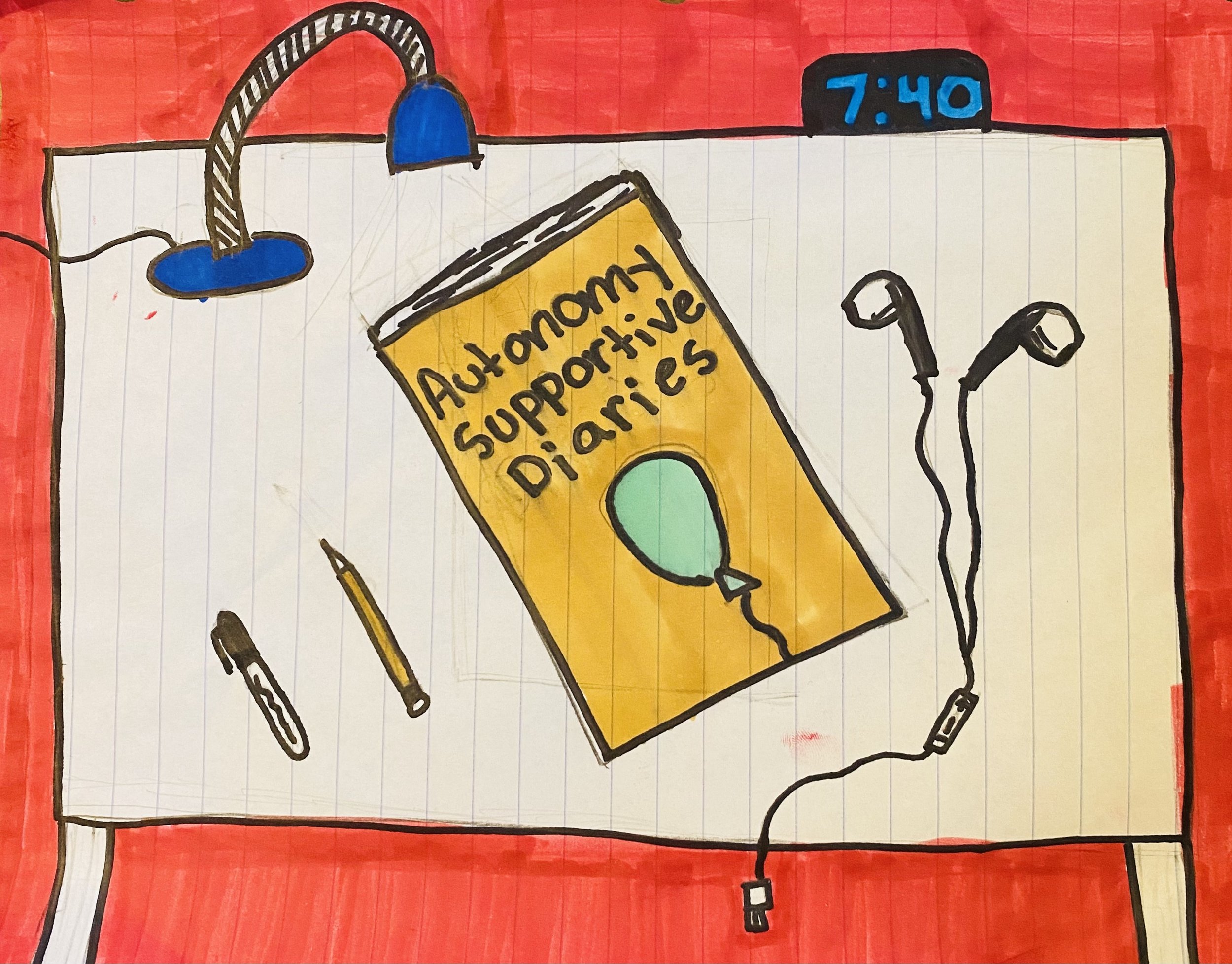
The Blog
Truth in Parenting
Tearing your hair out over lack of sleep, daycare decisions, homework enforcement, or what to do with the toddler tantrum? Want to feel better about your own tantrum as you try and manage it all? Read my Truth in Parenting blog for evidence-based reassurance (The Art and Science of . . . ), my own True Mom Confessions, and get a sneak peek of what my book offers with Autonomy-Supportive Parenting Diaries. Not sure where to start? Try here.
Get the Art & Science of Mom in your inbox
How to Have High Standards without Demanding All A’s
It may seem counterintuitive to reduce pressure on grades, especially if we see our child as achieving below their capacity. The instinct to increase pressure makes sense. But we know from the science of motivation and autonomy-supportive parenting that the more pressure our kids experience, the worse for their wellbeing and academic performance. But reducing pressure does not mean discarding expectations for academic performance.
"How Do I Get My Kid to Like School?"
Since we’re not getting rid of long-used external motivators like grades and test scores anytime soon, we can start tipping the scales toward internal motivation at home with how we parent.
Homework: From Headache to Harmony
No matter our personal opinion about the utility of homework, our child will likely come home with some version of schoolwork at home, and we have to decide how to approach it. Some parents may simply email the teacher and state, “We’re not doing homework in this household.” For those of us either on the fence about the value of homework or pro-homework, approaching it within the autonomy-supportive framework can help us all thrive rather than barely survive.
Redefining Success
Earning top scores and grades as the way to be successful becomes constricting and oppressive for many of our children, and feeds controlling parenting. Not to mention the pressure from kindergarten on to make sure our child is prepared to be competitive for a “worthy” college. I titled my book chapter about school, “Raising Real Success: From Grades to Grit” because the first step toward change in our unhealthy achievement culture is to tackle our mindset about school by redefining success.
New School Year, New Skills! How to Grow Self-Sufficiency
Let’s take this new school year with a new resolve to find opportunities for our children to do more for themselves—for their growth and for our stress!
How to Keep the Love of the Game
Let’s shout it from the rooftops: internal motivation is what often leads to better performance over the long run. And persistence. And joy.
How can we nurture internal motivation as a vehicle for performance, skill growth, and staying with activities instead of quitting? How can we help preserve the love of the game? Or instrument. Or performing art.
Youth Sports and Intensive Parenting: Travel Soccer Confessions
Youth sports has been swept up in the intensive parenting tsunami, becoming yet another symbol of our status and success as parents while wreaking destruction on family life, family budgets, and even the love of the game.
Are We Choosing Parent Burnout?
The problem is we need a total revamp of our parenting culture that has somehow veered into the danger zone of equating total self-sacrifice with good parenting.
From “Serve Me” to Self-Sufficiency
Many parents automatically do so much for their kids that we probably do not realize we have sort of programmed our children to expect a full-service instead of self-service lifestyle.
Child Independence Needs a Comeback
I’ve been hearing from parents everywhere that they have noticed even less independence in their children since the pandemic. My theory is that pandemic life fed the flames of intensive parenting due to the high stress and anxiety about our children’s welfare. In place of encouraging independence, the fear of all bad things happening to our children (including actual life and death fears) made us more protective.
Summer and Screens: How to Not Have a Power Struggle
Whatever your summer screen time situation, I’m here for you to take at least some struggle out of the power struggle.
The Parenting Expert Paradox
What I try to communicate as much as possible in this culture of pithy reels and clickbait headlines is that the general home environment you create as a parent matters more than each specific interaction between parent and child.
Raising a Strong Sense of Self
We don’t discuss this enough, this parenting challenge of recognizing our child’s separate self and refraining from projecting our own idea of who they are, yet it’s so crucial to raising our kids. The core of autonomy-supportive parenting is that we are raising our child to be who they are (and to know who that is), and not who we want them to be.
Parenting While Human
Our kids feel pressure when we are controlling, but that might be because we are feeling so much pressure. The more we feel pressure—whether that’s external from work/family/community expectations or internally driven by our ideas of “good parenting”—the more stressed and defensive we may get to prove to everyone else and ourselves that we know what we’re doing. That combination of pressure, stress, and defensiveness to prove ourselves can increase the impulse to control.
Summer Schedule: Is It Too Controlling?
When you start a conversation with your kids about the summer schedule, how do you approach the discussion in a way that doesn’t set up a summer-long battle of the wills?
How to Influence Instead of Control
By definition, parenting includes having expectations and standards for our children, setting limits, and directing our children to do things they don’t want to do—like pick up stinky socks littering the house. (Please tell me that’s not just my kids.) So, how do we accept our responsibility to actively raise our children while not controlling them?
The Control Conundrum
The reality is that we want to feel in control as parents, and we usually don’t. Feeling out of control naturally leads to more controlling behaviors, which ends up doing more harm than good in parenting. Such as undermining our child's personal sense of control. When we control our children more, they feel more out of control themselves. We rob them of exactly what we are seeking for ourselves.
Autonomy-Supportive Parenting in the Real World: Homework Edition
For our homework conundrum, I aimed to balance what felt like several competing interests: nurturing my young son’s internal motivation for learning, respecting the teacher’s way of running her class, and coaching my child through doing things he doesn’t like. How do we achieve all this without homework turning into a daily power struggle?
Why and How to Be a Less Controlling Parent
The bottom line is if we want to raise children who feel autonomous in the world – a strong sense of self and self-worth, living by their values – we need to be less controlling. When we control less, our children experience more freedom to explore the why of behaviors, internalizing the purpose and meaning of doing what we want them to (like be on time) instead of learning to do a behavior just to please us or avoid punishment.
Autonomy-Supportive Parenting Strategies
Rooted in a theory about what all humans need for well-being (called Social Determination Theory and backed up by research), autonomy-supportive practices build autonomy, relatedness, and competence in our children. Further, they can be used flexibly within a framework, rather than a prescriptive, “you must do these 10 things all the time to raise an amazing child.”




















